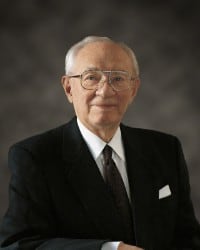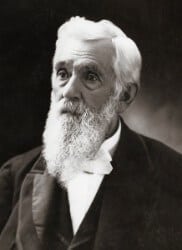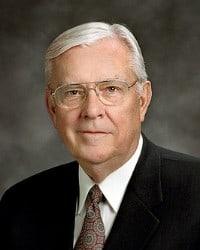
LDS Quotes on Perfection


“None of us will become perfect in a day or a month or a year. We will not accomplish it in a lifetime, but we can begin now, starting with our more obvious weaknesses and gradually converting them into strengths.”
| Standing for Something

“Patience means staying with something until the end. It means delaying immediate gratification for future blessings. It means reining in anger and holding back the unkind word. It means resisting evil, even when it appears to be making others rich. Patience means accepting that which cannot be changed and facing it with courage, grace, and faith. It means being “willing to submit to all things which the Lord seeth fit to inflict upon [us], even as a child doth submit to his father.” Ultimately, patience means being “firm and steadfast, and immovable in keeping the commandments of the Lord”every hour of every day, even when it is hard to do so. In the words of John the Revelator, “Here is the patience of the saints: here are they that keep the commandments of God, and . . . faith [in] Jesus.” Patience is a process of perfection. The Savior Himself said that in your patience you possess your souls. Or, to use another translation of the Greek text, in your patience you win mastery of your souls. Patience means to abide in faith, knowing that sometimes it is in the waiting rather than in the receiving that we grow the most. This was true in the time of the Savior. It is true in our time as well, for we are commanded in these latter days to “continue in patience until ye are perfected.”
| Continue in Patience, April 2010 General Conference

“Do not expect to become perfect at once. If you do, you will be disappointed. Be better today than you were yesterday, and be better tomorrow than you are today. The temptations that perhaps partially overcome us today, let them not overcome us so far tomorrow. Thus continue to be a little better day by day; and do not let your life wear away without accomplishing good to others as well as to ourselves.”
| Teachings of Presidents of the Church: Lorenzo Snow, p. 103

“There is a crack in everything; that’s how light gets in.”

“Above all the attributes of godliness and perfection, charity is the one most devoutly to be desired. Charity is more than love, far more; it is everlasting love, perfect love, the pure love of Christ which endureth forever. It is love so centered in righteousness that the possessor has no aim or desire except for the eternal welfare of his own soul and for the souls of those around him.”
| Mormon Doctrine, p. 121

“One of the seven greatest heresies is that you must be perfect before you die.”

“If men come unto me I will show unto them their weakness. I give unto men weakness that they may be humble; and my grace is sufficient for all men that humble themselves before me; for if they humble themselves before me, and have faith in me, then will I make weak things become strong unto them.” [Ether 12:27] There are interesting things about that scripture, one is that the Lord gives us weaknesses – not sin, but weaknesses – so that we may be humble. Think about that for a moment. If we were perfect in every respect, it would be hard to be humble. Even in specific things, humility comes harder to those who are very strong in one area or another. The woman or man who is remarkably beautiful or handsome can easily become proud of her or his appearance. A brilliant scholar may look down in condescension on those less intellectually blessed. Our weaknesses help us to be humble.
| “Strong in the Lord, and in the Power of His Might,” March 3, 2002

“We may be quite sure that Christ-centeredness and Christ-likeness will never be attained by our own unaided efforts. How can self drive out self? We could as well expect Satan to drive out Satan. We’re not interested in skin-deep holiness and a merely external resemblance to Jesus Christ. We’re not satisfied by a superficial modification of behavior patterns in conformity to some Christian subculture which expects this, commands that, and prohibits the other. No, what we long for is a deep inward change of character resulting from a change of nature and leading to a radical change of conduct. In a word, we want to be like Christ, and that thoroughly, profoundly, entirely. Nothing less than that will do.”
| 1992 CES Symposium at BYU

All of our decisions will not be perfect. We will feel hopefully only temporarily, regret. But let us never wait for perfect clarity. It will be a rare decision indeed when all of the data in perfect clarity is apparent before the decision is made. Some of our greatest growth comes from the mind stretching exercise of filling in where information is not available and weighing that which is incomplete. Sometimes there must simply be a leap of faith.
| “Decisions Determine Our Destiny,” February 6, 1981